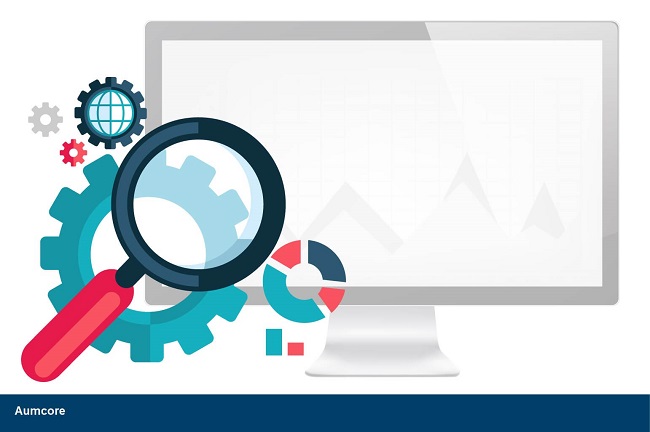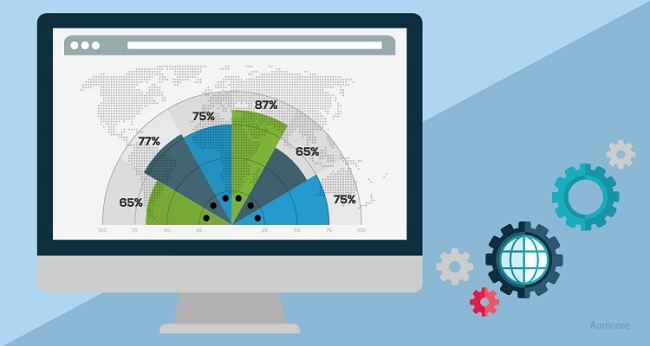Since the explosion of Bitcoin, users have been wondering what in the world blockchain technology is. Many people think of it as the future of the digital world, and are investing hundreds of thousands of dollars into cryptocurrencies. On the other end of the spectrum, though, you have users who view it is a huge cybersecurity threat. Blockchain does have the power to launch the digital experience into the next century, but the fact of the matter is that the technology is still largely in its infancy.
In this post, we will be demystifying blockchain technology and explain how blockchain will impact marketing.
What Is Blockchain Technology?
Blockchain is used to describe the process by which information and data is stored across a network of personal computers, making the data decentralized and distributed. This means that everyone can use, access and help run the network. This is also the main reason blockchain is so revolutionary; everything is completely public and no single person or entity owns or runs it. It’s also one of the most important features of blockchain, as it makes corrupting or taking down the network a very difficult feat.
How Does Blockchain Work?
So, how does blockchain work? Well, the people who actively choose to run the network hold records submitted by other users on their personal computer in chronological order. Those records are what’s called the “blocks,” and the “chain” refers to the chronology of those records. Blockchain uses math called cryptography, which ensures that records cannot be altered or faked by any user:
Cryptography converts data into a format that is unreadable for an unauthorized user, allowing it to be transmitted without unauthorized entities decoding it back into a readable format, thus compromising the data.
Information security uses cryptography on several levels. The information cannot be read without a key to decrypt it. The information maintains its integrity during transit and while being stored. Cryptography also aids in nonrepudiation. This means that the sender and the delivery of a message can be verified.
Blockchain’s most notable application that went viral was Bitcoin, which is a cryptocurrency known by many. Unlike any other form of money, there is no bank or middleman involved in Bitcoin transactions. What happens instead is that transactions made with Bitcoin are monitored by users running the blockchain network. They validate each transaction, which is how Bitcoin is moved. Because Bitcoin also runs on blockchain technology, only one person can be the owner of the currency at a time, meaning that it can’t be counterfeited.

Pros and Cons of Blockchain for Digital Marketing
While cryptocurrency is definitely an interesting use of blockchain, there are other ways different industries can utilize this technology. For digital marketers, blockchain technology has a lot of pros and cons that can be applied to the industry. Below we will go over some positives and negatives of how blockchain will impact marketing, and some blockchain applications for marketing:
The Pros of Blockchain
- Transparency – One of the defining characteristics of blockchain technology is transparency, as all transactions are held on a public record and anyone can look up its history. For marketers, transparency with blockchain will be applied a little differently. Companies like BitClave will use blockchain’s transparency to disrupt the search process by decentralizing search from search engines like Google. This means that brands will be able to more effectively target consumers based on their personal data, and users will be able to receive better offers from brands. This eliminates third-parties and puts businesses in direct line with their target audience for more effective blockchain digital marketing.
- Fraud Detection, Prevention and Privacy – Once again, the transparent nature of blockchain makes fraud detection and prevention a lot easier. That’s not the only benefit of transparency, though; with blockchain, big tech companies like Facebook, which have been facing harsh backlash over user privacy, won’t have to worry about that as an issue anymore. This is also great news for your brand and your blockchain marketing strategy because it means your clients, users and shareholders can all rest easy.
- Data Collection and Storage – Blockchain marketing technology also benefits you in terms of data collection and storage. If your data is coming in from a variety of different sources, they can all be verified and authenticated through blockchain.
The Cons of Blockchain
- No Regulation – Whenever it comes to incorporating new technology into your digital marketing strategy, there are always risks involved. For blockchain, one of the major risks is the lack of regulation. While that’s also one of blockchains biggest positives, it also makes for a concerning negative because your business is held much more accountable for any mistakes or data breaches that might occur.
Digital Marketing and Blockchain
As you can see, the positives of using blockchain in marketing largely outweigh the negatives. That’s not to say that the negative isn’t a big enough concern to raise flags for any business; there’s much more accountability and pressure for businesses to perform well. Although that may seem intimidating, the potential for business success is endless with how transparent blockchain technology is, and how the tech allows for seamless communication between brands and end users.
Raj Chander, Marketing Consultant at Hubspot and Vice, puts it this way:
“It’s a win for all parties: Marketers get better ad performance data and targeting, publishers get more revenue and control over ads they display, and users get fewer, better-quality ads related to their interests – without compromising their personal data, thanks to blockchain encryption.”
Blockchain technology is still largely only viewed as a means for transferring cryptocurrency, but that doesn’t mean its capabilities are limited to just that. When it comes to data on your target audience, blockchain technology powers digital marketers even further. According to Jennifer Warren, writer for JeffBullas.com:
“Adchain [an open protocol on Ethereum’s public blockchain] keeps an eye on the entire digital ad supply chain for clicks, geographic location, purchases and audience segmentation. Which means you will have a single source of truth for everything related to the ad impressions.”
These quirks are some of the biggest reasons why digital marketers would and should opt for this technology.
The Re-Cap
Blockchain in digital marketing is still in its early stages, which is why there is no one blockchain marketing definition. How platforms of the future decide to utilize the unique aspects of blockchain will determine how blockchain will impact marketing. Hopefully, this blog post has helped you understand what blockchain is and how it can be used within the context of digital marketing. Let’s review the top points of this post one more time:
- Blockchain is a public network that stores data on individual computers worldwide
- Blockchain works because numerous users across the globe monitor the network and store data on their personal computers in chronological order
- Because blockchain uses a type of math called cryptography, it makes the network very difficult for a single user to corrupt
- Blockchain’s pros for digital marketing include transparency, fraud detection, prevention, privacy and data collection and storage
- Blockchain’s cons for digital marketing include no regulation and more accountability for businesses
Now that you have a better idea of what is blockchain marketing, let us know in the comments what you found most interesting about this post, or if you have something you’d like to add — we’d love to hear from you!





Tell us your thoughts in the comments